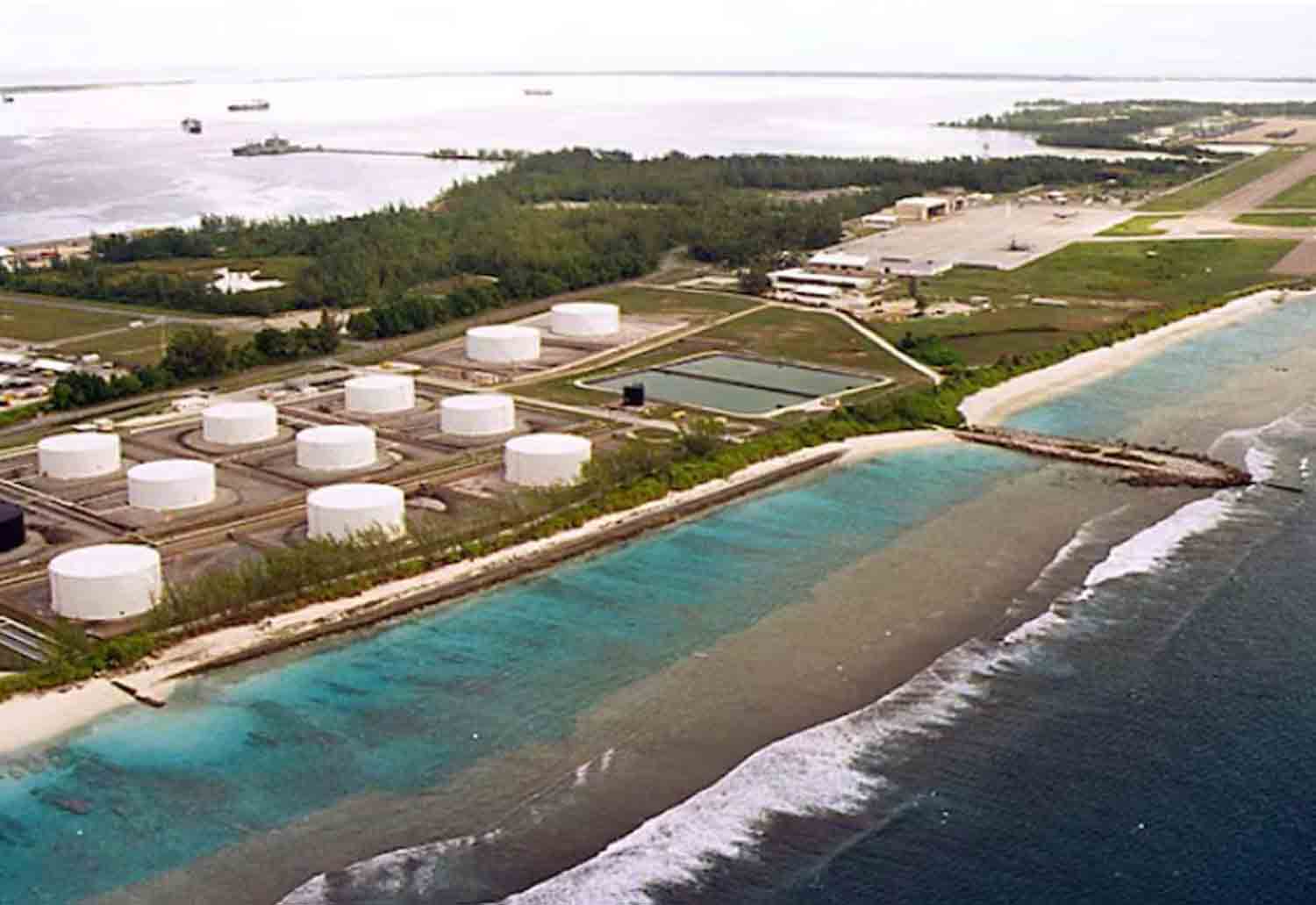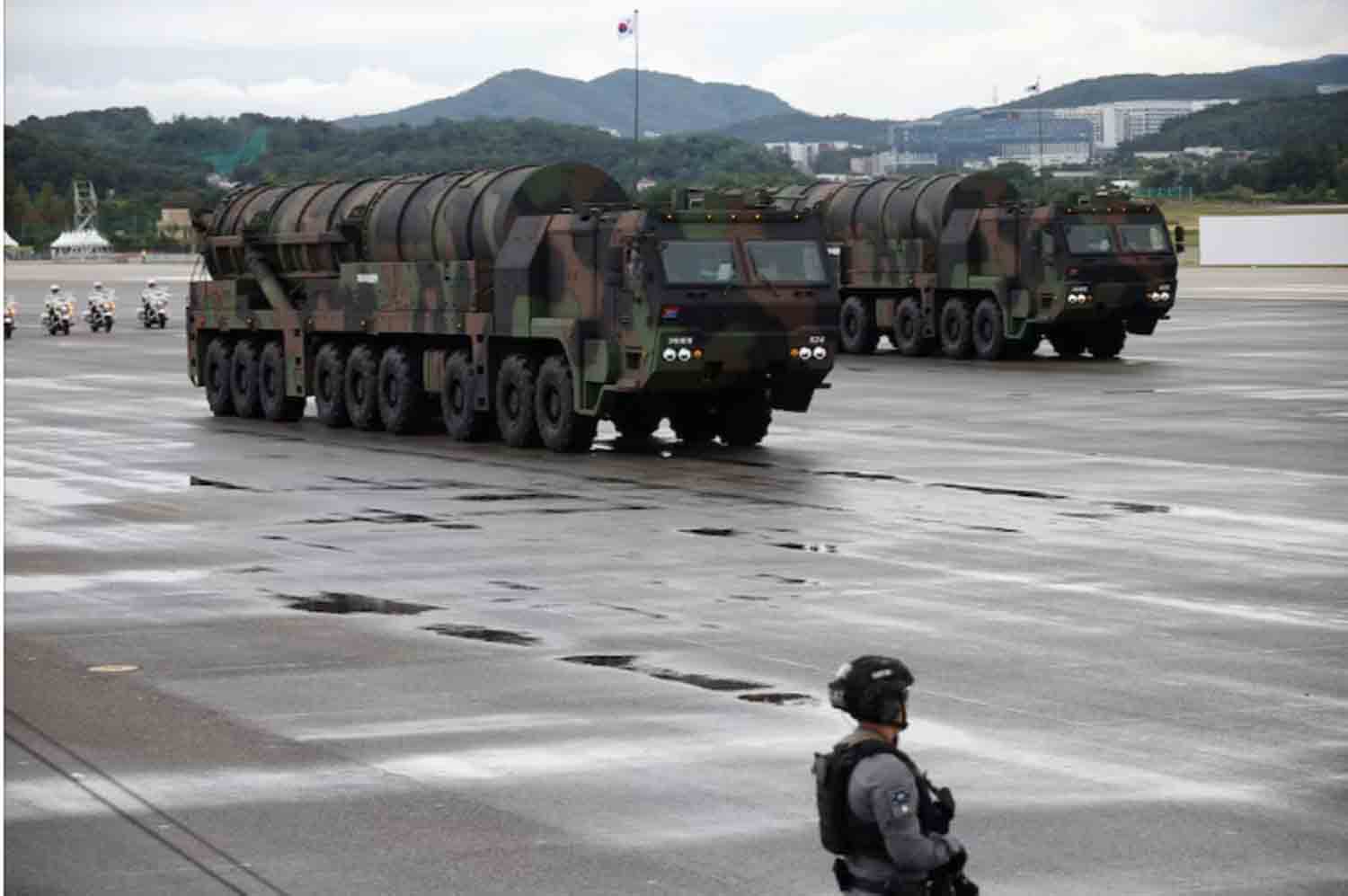On a balmy spring evening in Athens, just before midnight, a senior executive at a Greek shipping firm discovered an alarming email in his personal inbox. The correspondence, which was also directed to the manager’s professional email, cautioned that one of the company’s ships navigating the Red Sea was in danger of an attack by the Iranian-backed Houthi militia from Yemen.
The Greek-operated vessel had breached a transit ban imposed by the Houthis by docking at an Israeli port and was warned it would be “directly targeted by the Yemeni Armed Forces in any area they deem appropriate,” according to the message, which was written in English.
“You bear the responsibility and consequences of including the vessel in the ban list,” the email stated, signed by the Yemen-based Humanitarian Operations Coordination Center (HOCC), an organization established in February to facilitate communication between Houthi forces and commercial shipping entities. Since November, the Houthis have executed nearly 100 attacks on vessels traversing the Red Sea, motivated by their support for Palestinians amid Israel’s ongoing conflict in Gaza. They have sunk two ships, captured another, and resulted in the deaths of at least four seafarers.
An email received at the end of May issued a warning regarding potential “sanctions” against the entire fleet of a company if a specific vessel continued to “violate the ban criteria and enter the ports of the usurping Israeli entity.” Both the executive and the company chose to remain anonymous for safety concerns. This warning was the initial communication in a series of over a dozen increasingly threatening emails sent to at least six Greek shipping firms since May, amid escalating geopolitical tensions in the Middle East, as reported by six industry insiders with direct knowledge of the correspondence and two with indirect knowledge.
Since the previous year, the Houthis have been launching missiles, deploying armed drones, and sending explosive-laden boats towards commercial vessels associated with Israeli, U.S., and UK interests. The email campaign, which has not been reported before, suggests that Houthi rebels are broadening their focus to include Greek merchant ships that have minimal or no ties to Israel. Notably, the threats have recently been directed at entire fleets for the first time, heightening the risks for vessels attempting to navigate the Red Sea.
An email sent in June from a Yemeni government domain to a Greek shipping company stated, “Your vessels have violated the directives of the Yemen Armed Forces. Consequently, penalties will be enforced on all ships belonging to your company… Best Regards, Yemen Navy.”
Yemen, strategically located at the entrance of the Red Sea, has been engulfed in civil conflict for several years. The Houthis seized control of the capital, Sanaa, in 2014, displacing the internationally recognized government. Earlier this year, the United States reinstated the Houthis on its list of terrorist organizations.
When approached by Reuters, Houthi representatives refrained from confirming the authenticity of the emails or offering further comments, citing the information as classified military data.
It remains unclear whether similar communications were sent to other international shipping firms. Greek-owned vessels, which constitute one of the largest maritime fleets globally, accounted for nearly 30% of the attacks attributed to Houthi forces up to early September, according to data from Lloyd’s List Intelligence, which did not clarify any connections to Israel.
In August, the Houthi militia, aligned with Iran’s Axis of Resistance coalition of anti-Israel groups, targeted the Sounion tanker, leaving it ablaze for weeks before it could be safely towed.
These assaults have led many shipping routes to divert significantly around Africa. Traffic through the Suez Canal has decreased from approximately 2,000 transits per month prior to November 2023 to about 800 in August, as reported by Lloyd’s List Intelligence.
Tensions in the Middle East escalated sharply on Tuesday when Iran launched over 180 missiles at Israel in response to the recent killings of militant leaders in Lebanon, including Hezbollah’s Sayyed Hassan Nasrallah last Friday.
NEW PHASE
The European Union’s naval force Aspides, which has successfully assisted over 200 vessels in navigating the Red Sea safely, reported a shift in the Houthis’ tactics during a private meeting with shipping companies in early September, as indicated by a document reviewed by Reuters.
In this document, distributed to shipping firms, Aspides noted that the Houthis’ choice to issue warnings to entire fleets signifies the onset of the “fourth phase” of their military operations in the Red Sea.
Aspides also recommended that ship owners deactivate their Automatic Identification System (AIS) transponders, which provide a vessel’s location and serve as a navigational tool for nearby ships, stating they must “turn it off or face the risk of being targeted.”
According to the same briefing, Aspides reported that the Houthis’ missile strikes achieved a 75% success rate against vessels utilizing the AIS tracking system, while 96% of attacks missed when the AIS was disabled.
Rear Admiral Vasileios Gryparis, the operational commander of Aspides, informed Reuters that the organization is aware of the emails and emphasized that any response should be approached with caution, advising companies to notify their security teams if contacted prior to departure.
Specifically, for the Humanitarian Operations Command Center (HOCC), the guidance is to refrain from responding to VHF communications and emails from the “Yemeni Navy” or the HOCC.
The Houthis initiated their email campaign in February, sending messages to shipowners, insurance firms, and the primary seafarers’ union from the HOCC.
The initial emails, two of which were reviewed by Reuters, warned the industry of a travel ban imposed by the Houthis on certain vessels, although they did not explicitly indicate an imminent attack.
Subsequent messages sent after May took on a more threatening tone.
At least two Greek-operated shipping companies that received these email threats have opted to cease operations through the Red Sea, according to two sources with direct knowledge of the situation, who requested anonymity for security reasons.
An executive from a third shipping company, which has also received a letter, indicated that they chose to cease operations with Israel to maintain access to the Red Sea route. “If safe passage through the Red Sea cannot be assured, companies must take action—even if it results in delayed delivery schedules,” stated Stephen Cotton, General Secretary of the International Transport Workers’ Federation, the primary union organization for seafarers, which received an email from HOCC in February. “The safety of the seafarers is at stake.”
The email campaign has heightened concerns among shipping firms. Insurance premiums for Western ship owners have already surged due to Houthi attacks, with some insurers halting coverage entirely, sources informed Reuters.
Conbulk Shipmanagement Corporation, based in Greece, has halted Red Sea operations following two attacks on its vessel, MV Groton, in August. “No Conbulk vessel is operating in the Red Sea. This decision is primarily about crew safety. When the crew’s safety is compromised, all discussions cease,” remarked Conbulk Shipmanagement CEO Dimitris Dalakouras at a Capital Link shipping conference in London on September 10.
Torben Kolln, managing director of the German container shipping company Leonhardt & Blumberg, noted that the Red Sea and the broader Gulf of Aden are considered “no go” zones for their fleet.
When contacted by Reuters, the companies did not provide comments regarding whether they had been affected by the Houthi email campaign.
Some companies continue to navigate the Red Sea due to binding long-term contracts with charterers or the necessity of transporting goods in that region. The Red Sea remains the quickest route for delivering goods to consumers in Europe and Asia.
The Houthis have not completely halted all maritime traffic, and the majority of ships owned by Chinese and Russian interests—whom they do not associate with Israel—can pass through without hindrance and at lower insurance rates.
We are providing assurance to vessels owned by companies that are not affiliated with the Israeli adversary, confirming their safety and freedom of movement, as well as the continuous operation of their AIS devices. This message was conveyed in an audio recording from a Houthi communication directed at ships in the Red Sea in September.
Discover more from Defence Talks | Defense News Hub, Military Updates, Security Insights
Subscribe to get the latest posts sent to your email.





